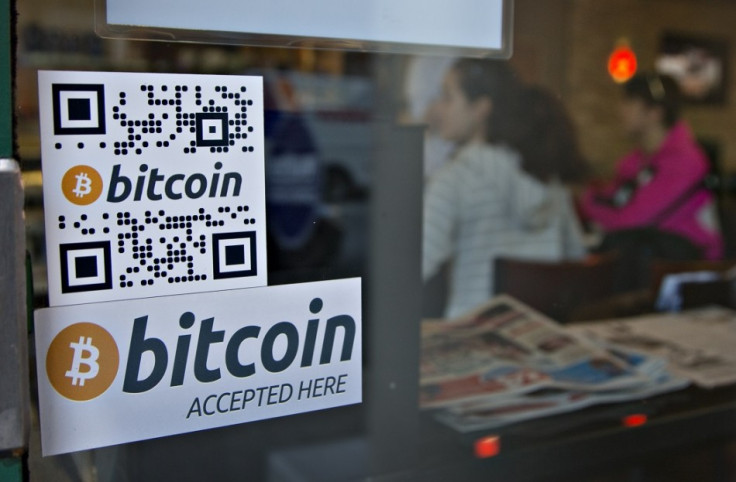Bitcoin, Litecoin and the Curious Case of Crypto-Currencies' Legality
Alistair Charlton investigates the legal status of crypto-currencies like bitcoin and litecoin, which their phenomenal growth in recent weeks, leaving lawyers, the police and governments unsure if they will ever be successfully regulated.

IBTimes UK has spoken with lawyers, security experts, the Financial Conduct Authority and the National Crime Agency (NCA) to try and understand where these decentralised crypto-currencies stand in the eyes of the law. As multi-million-dollar bitcoin thefts are occurring on a regular basis, the law-makers are scrambling to work out what these currencies are, and how users can keep their money safe.
An NCA spokesperson told us that, as part of its ongoing work to combat "threats from cyber space", it will "lead a multi-agency team, whose role will be to investigate and combat the scale and nature of the threat to the UK from virtual currencies." What this work will involve is currently being agreed upon with the NCA's global partners.
The NCA agrees with the view of a number of lawyers, stating that bitcoins and other such currencies are - although not legal tender like pounds and dollars - a means of payment and value, and therefore stealing them is a theft, not merely a computer hack.
Apart from issues of theft and ownership, the NCA also recognises the complications virtual currencies add to the UK taxing system, inheritance, anti-money laundering, and whether the currency can be sent abroad without charge.
A tough job determining jurisdiction
Lawyer Jonathan Lea said: "Even though its not a legal currency as such, it is still something of value/property so it will still be a theft pursuant to the Theft Act 1968 and a criminal office.
"However, given its virtual nature I imagine people would have a tough job determining jurisdiction or what country's laws apply in the first place."
Bitcoins and litecoins are not regulated by any central bank, country or individual; they are not backed up by any physical asset such as banknotes or gold bars, and although each transaction - even the thefts - of bitcoin can be viewed in the Blockchain, the identity of every user is anonymised.
Lawyer Craig Rattray of Olswang says: "Whether you lose £20 out of your wallet, £20 out of your bank account, or £20 worth of bitcoins, the principle is identical, it's the theft of someone's property - but the interesting point is the anonymity of its owners."
Because bitcoin has no country of origin, it is difficult to know which country's laws its users must abide by. While the UK has e-money regulations to control services like PayPal - and Rattray believes bitcoin falls into the same category of services - other countries do not.
Getting your stolen bitcoins back
As bitcoin's value increases, the temptation for cybercriminals to steal it is also on the up. A Chinese bitcoin exchange created in May shut down recently, disappearing without trace and taking $4.5m worth of users' coins with it. An Australian man had $1m worth of coins stolen, and a Danish exchange lost a similar amount.
All this takes bitcoin trading closer to the Wild West than a rival to sterling and dollars.
In the case of the unnamed Australian, he told local media he wouldn't bother reporting the theft to the police, believing there is nothing they could do to help. According to Lea, this isn't far from the truth.
"Financial crime is notoriously difficult to enforce, and the huge added complexity of retrieving/tracing stolen bitcoins would no doubt make it almost impossible to use the law to get the bitcoins back, unless you have a budget running in the millions to spend."
This belief that the police cannot help is shared by security expert Brian Krebs, who told IBTimes UK that, despite him believing bitcoin theft is the same as any other theft, the authorities are unlikely to help.
"Unfortunately, in a lot of these cases, the question comes down to the value of the loss. If the loss is substantial (at least six figures in US dollars) the feds may be interested. Ultimately, it comes down to the prosecutors, and whether they think they can build a case they can win without a ton of trouble."
Bitcoin is not a currency
Further placing crypto-currencies into a legal no man's land, the Financial Conduct Authority told IBTimes UK it does not consider bitcoin to be a currency, and does not regulate its use.
A spokesperson said: "The FCA does not regulate bitcoin or any of the other electronic currency...and at present we have no plans to do so.
"Whilst the FCA does not regulate bitcoins, businesses providing services related to bitcoins, or other digital currencies, should consider whether they are carrying on regulated activities. Bitcoin is not a recognised currency like pounds sterling or any international currency."
The only way for bitcoin regulation to be created, according to Rattray, is for individual countries - or as a collective effort through the European Union - to take action.
Rattray said: "It would come down to a regulator and a jurisdiction saying 'right this is something we want to be interested in'. It would take a regulator to take action, and the first thing they would need to do is check they have the right to have jurisdiction withstanding in relation to the entity."
Intentionally vague
But from here the headaches continue, because being decentralised means bitcoin has no home country, therefore no one state can claim to have jurisdiction over how the currency operates - thought to be a deliberate move by bitcoin's pseudonymous founder or founders, Satoshi Nakamoto.
Rattray said: "I think with bitcoin [Nakamoto is/are] intentionally being quite vague about where they are based. It isn't really based anywhere - whereas PayPal has a registered UK entity. It's the difference between a good corporate citizen and an enterprise that is actually intentionally being less forthright."
If the volatility of bitcoin's price, its ties to illegal drug dealing, use for funding assassination attempts, and the fear of losing coins or having them stolen without trace isn't enough to put off potential investors, then the legal minefield caused by its anonymous, decentralised nature could well stop the currency from ever being more than a mysterious money-maker - tempting to many, but shot through with risk.
Read More:
© Copyright IBTimes 2025. All rights reserved.






















